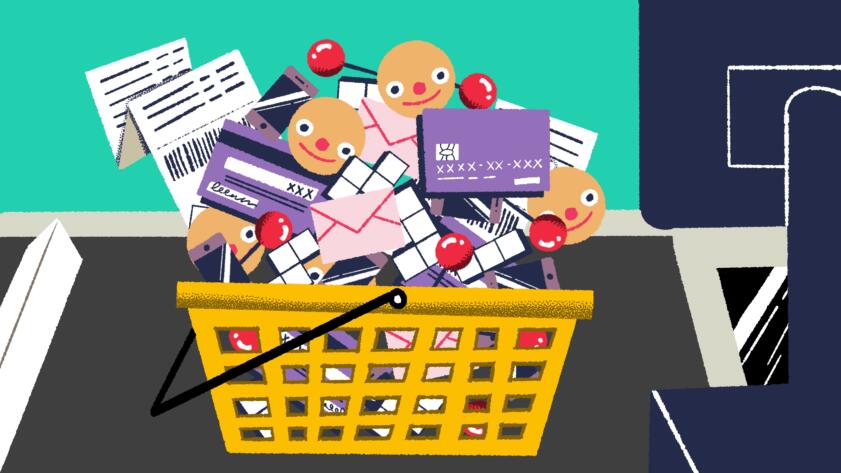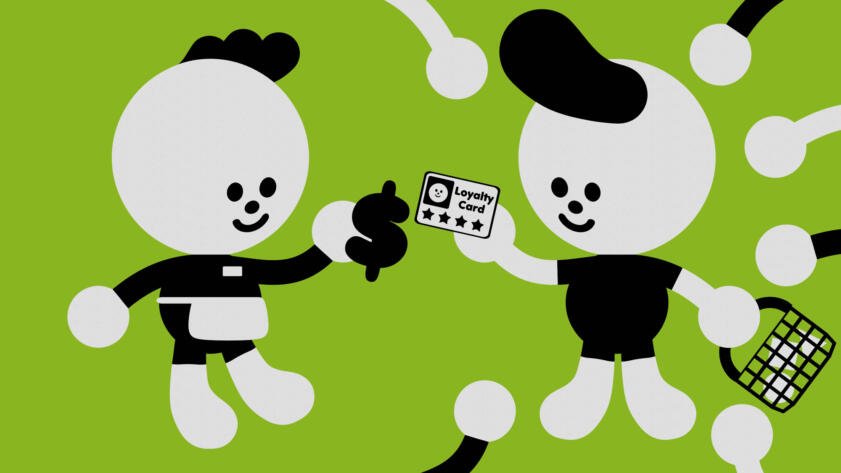Subscribe to Hello World
Hello World is a weekly newsletter—delivered every Saturday morning—that goes deep into our original reporting and the questions we put to big thinkers in the field. Browse the archive here.
Hi, everyone,
I’m Ryan Tate, an editor here at The Markup. It’s Saturday morning, and I’d like to talk about your most mundane daily experiences, and how to keep them boring and harmless.
Driving a car. Looking at your phone. Voting. Jon Keegan, one of our reporters at The Markup, has carefully documented how these common human experiences now put people’s most sensitive data at risk for harvesting by strangers. That’s because companies in seemingly every industry—from automakers to app creators to political campaigns—now believe they can make money off tracking their users.
“Everyone’s a data broker now,” Jon told me recently, quoting a friend.
That’s so true, it hurts.
In 2021, Jon wrote about the multibillion-dollar market for your phone’s location data. He then stepped back and started looking at various ways our personal information leaks out in day-to-day life—data sinks we are vaguely aware of but don’t scrutinize. After cars and political ads, supermarkets seemed like a natural next step. Jon told me he always pauses at checkout at the supermarket and doesn’t share his phone number to use his family’s loyalty program membership, leaving real money on the table and causing an ongoing argument with his wife. Skipping out on discounts? In this economy? While the entire tech journalism industry is focused on probing the potential sentience of AI-powered chatbots, Jon suspected that everyday supermarket data was an underreported topic that was due for fresh inspection.
Everybody’s a data broker now.
Based on his prior reporting on how consumer data is bought, sold, and traded with few limitations, Jon theorized that supermarkets today are likely gathering more data about us than ever before. Loyalty card programs, after all, go back to before smartphones and before ubiquitous online tracking, back to before billions of dollars could be made from data collection. He wondered: How have supermarket discount programs evolved?
Jon accelerated his research in the following weeks, paying particular attention to the two largest supermarket chains, Kroger and Albertsons, which had proposed merging into the nation’s largest supermarket chain. Politicians and advocacy groups were worried the merger would drive up food prices, drive down wages, and result in a massive, highly sellable, pool of sensitive data about shoppers. (Albertsons told us that “we appreciate the importance of privacy and take appropriate handling of our customers’ data seriously” and that it had recently updated its privacy policy. Kroger did not respond to Jon’s requests for comments.)
Jon found that Kroger loyalty programs, including those for other brands the company owns, like Ralphs and Food 4 Less, help collect information that goes well beyond the list of items in your shopping cart. The company “enriches” information it has on what you buy and who you are with additional data. Some of this data is acquired from brokers, some comes from Kroger apps, some of it comes from Bluetooth beacons and facial recognition systems in stores. Some is even systematically inferred from all the other data.
Drawing from these sources, Kroger can collect your financial information, including bank and credit card account numbers; track demographic data, including race, ethnicity, age, and employment information; make inferences about your health and behavior; track your precise physical location in the store if you consent; and recognize your face in select locations, with signs providing notice.

Privacy
Forget Milk and Eggs: Supermarkets Are Having a Fire Sale on Data About You
When you use supermarket discount cards, you are sharing much more than what is in your cart—and grocery chains like Kroger are reaping huge profits selling this data to brands and advertisers
Jon also found that Kroger had two business units focused on making money from all the information Kroger collects. One, known as Kroger Precision Marketing, sells advertising to product makers, not only in stores, per long-standing industry practice, but also by following shoppers onto the internet, their smartphones, and their home entertainment devices.
Kroger’s other data-related business carries the startup-like name 84.51, corresponding to the longitude of Kroger headquarters in Cincinnati, Ohio. This unit sells information and “insights” gleaned from what the company describes as “35+ petabytes” of customer data. (That’s the equivalent of several million downloads of the film “Black Panther: Wakanda Forever,” in case you were wondering.)
Kroger sees 84.51 and Kroger Precision Marketing as key sources of growth. These units, along with a personal finance division, are part of its “alternative profit business,” offering much higher margins than selling produce and canned goods.
A promotional presentation about the Kroger-Albertsons merger (see page 18 here) shows that the company believes these types of business units are worth “+$1B Annual Alternative Profits” to “Kroger Today” and represent a “~$1.5B Annual Alternative Profits Opportunity” to Kroger and Albertsons combined. That would be big growth from the $150 million in incremental operating profits Kroger derived from these businesses in 2021. Clearly, Kroger is as excited about monetizing shopper data as it is about selling groceries.
The ad industry is excited, too. As Jon was putting the finishing touches on his story, I spent a day earlier this month at the AdExchanger Industry Preview event in New York. Industry players at the conference are grappling with major challenges, including economic headwinds that have seen many ad budgets slashed and privacy concerns that could bring new regulations. (Our editor-in-chief, Sisi Wei, who you heard from a few weeks ago, wrote about being invited to the event and explaining how advertisers could limit their data collection.)
But advertising sold by supermarkets and other stores, categorized as “retail media” to the people at the conference, emerged as a clear industry bright spot, alongside ads for video streaming services like Netflix. Over and over again people on stage talked about how effective it was to buy ads from retailers like Amazon, Walmart, and Kroger, and how it paid to leverage their customer data. One executive, Jed Dederick of ad-buying platform The Trade Desk, explained that retailers sometimes know more about how to reach a company’s likely customers with online ads than the company itself. Two speakers from Arete Research highlighted retail media as the industry’s fastest-growing segment. Retail media “are outgrowing all other forms of advertising in ’22” by 10 percentage points or more, said analyst Rocco Strauss, “and will likely do so again in 2023.”
If the power and extent of shopper tracking is taken as a given in the ad industry, it still seems to be news to the shoppers themselves. When Jon’s story published last week, it caused a minor sensation. Jon was interviewed about his findings by NPR’s “All Things Considered,” and his revelations were written up by Business Insider, highlighted by The Washington Post, and featured on the techno-political podcast “This Machine Kills”.
I know that while Jon appreciates that sort of impact, what he really wants is to find out precisely what information the supermarkets are collecting, and if any of it is potentially harmful. You can help him. If you’re a frequent shopper at a Kroger-owned supermarket, and a Kroger Plus or Boost member in California or Virginia and want to help find out what Kroger has, email Jon at keegan@themarkup.org.
And if you’re wondering, Jon still refuses to hand over his number at the checkout, much to his wife’s annoyance.
Cheers,
Ryan Tate
Editor
The Markup
P.S. In case you missed it, I also wanted to share two important pieces that we published this week. First, our investigation into how L.A.’s scoring system for subsidized housing gives Black and Latino people experiencing homeless lower priority scores, along with our tips for how to investigate scoring in other cities. We’ll dive more deeply into this investigation with you next week. Second, we released a tool this week called the United States Place Sampler (USPS), which lets you easily sample random U.S. street addresses without knowing how to code. Soon, we will be releasing a guide on how to replicate our investigation into internet disparities in other American towns and cities using USPS.




